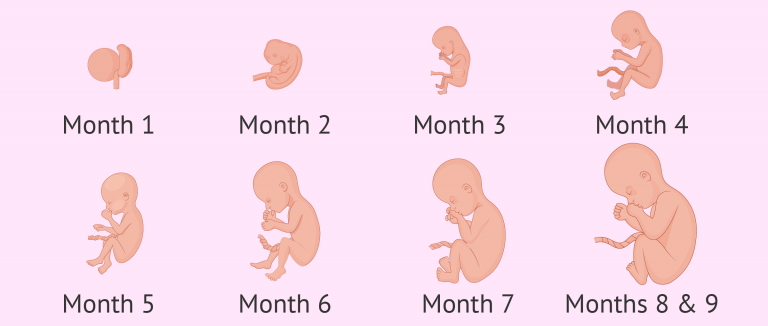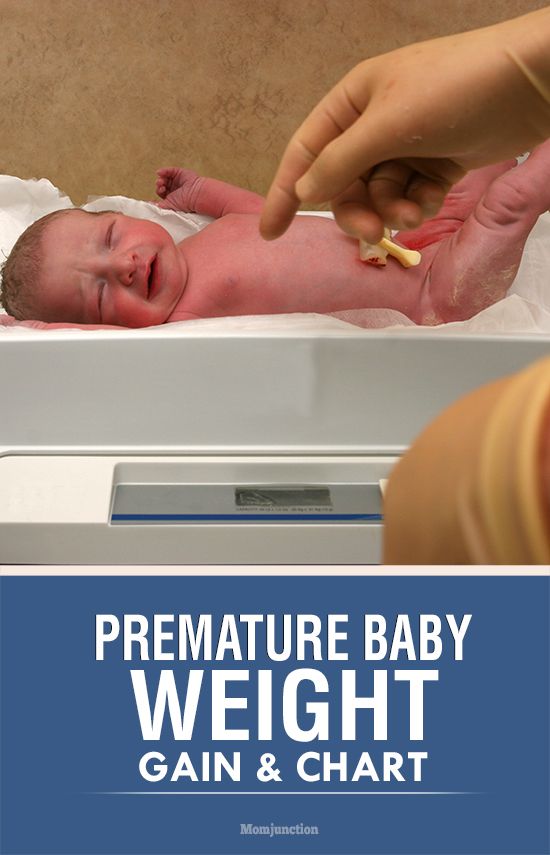Do surrogates get to hold the baby
A Guide to Transferring a Surrogate Baby to Its Intended Parents
When you’re expecting a baby, a lot of questions arise. When you’re expecting a baby through surrogacy, that number of questions triples. It can be overwhelming to navigate the ins and outs of a surrogate pregnancy, especially as the intended parents. Countless logistics and practical factors demand your attention as you prepare for your baby’s arrival. But, beyond all the preparation, you’re probably spending a lot of time and energy worrying about one major element — connecting with your new baby.
“Attachment,” the psychological term given to the deep bond formed between a parent and their child, is what drives parents to care for their children, even before they are born (known as “prenatal attachment”). It’s also what provides children with a sense of security, well-being and self-esteem from the very beginning of their life. In fact, researchers believe that this “attachment” is what motivates self-care throughout pregnancy as well. The attachment between a child and their parents isn’t something most people give much thought to — until they begin the surrogacy journey.
Because there’s a physical element to developing an attachment, the baby will naturally be born with some attachment to their surrogate. This prospect can be hard for intended parents to understand. It’s also one that can be hard to navigate in the minutes and hours following delivery, which is why addressing this issue ahead of time and preparing for the emotional transfer after birth is so important.
What Is Transfer?
During the pregnancy, babies develop strong senses of hearing and smell. These senses allow them to bond with their mother — or in this case, their surrogate. Because they’ve spent nine months listening to their surrogate and becoming familiar with her, it’s important that intended parents realize their baby will be born with a natural attachment to the surrogate. It’s completely normal for the baby not to immediately bond with the intended parents. While bonding with your baby after surrogacy is crucial (and possible), intended parents need to be prepared.
While bonding with your baby after surrogacy is crucial (and possible), intended parents need to be prepared.
The term “transfer” is used to refer to the exchange of the baby from the surrogate to the intended parents. Transferring a baby from its surrogate mother to its intended parents is a huge milestone in the surrogacy journey. It marks the completion of nine months of preparation and the beginning of a new life chapter for parents and child alike. It’s the goal that everyone has been working toward since the beginning.
The moment of transfer is marked with a lot of emotion and, if you aren’t careful, it offers the potential for unnecessary stress placed on the baby, the surrogate and the intended parents.
To avoid that stress, you need to understand the ways you can prepare for the transfer. To do that, you must first understand that there’s more to transfer than simply having the surrogate hand the baby to the intended parents. The process of transfer has both an emotional and physical component — not only for the adults involved but also for the baby.
Emotional Transfer
The transfer of attachment from the surrogate to the intended parents is called the “emotional transfer,” and it’s a process that should be started well before the baby arrives. In fact, depending on the level of connection a surrogate and the intended parents intend to maintain post-delivery, the baby’s birth may actually mark the culmination of the emotional transfer process.
First and foremost, it’s vital that the surrogate and the intended parents choose to focus on the health and well-being of the baby above anything else. This decision is the key to a successful transfer. Intended parents are so excited and eager to finally be parents that it can be easy to lose focus and dwell on their impending parenthood instead of the baby, which can add emotional complications to the process.
If you’re an intended parent of a surrogate-born baby, you can take several steps to ready yourself to focus on your child and prepare for a healthy emotional transfer.
- Be kind to yourself: If you’re an intended parent who is reading this because you’re worried about bonding with your surrogate baby, you can put those fears to rest. Good parents are parents who care. You care enough that you’re worried about it — which probably means you’re more than equipped with the compassion and strength needed to make this work.
- Grieve your losses: If you’ve chosen the surrogacy route to complete your family, you’ve probably gone through years of infertility. As you prepare your home for a baby, it’s important to prepare your mind and heart as well. And that starts by resolving past hurt. It’s essential that you grieve the loss — not being able to carry your own child — and identify any unresolved grief stemming from your experiences. That pain isn’t going to disappear when your child is born, but processing it will allow you to move forward and focus on your baby’s needs.
- Be involved: As an intended parent, it’s important for you to be involved in the pregnancy.
 If you’re able, make arrangements with the surrogate to attend doctor’s appointments. Decorate a nursery and prepare your home for the baby’s arrival. It’s even a great idea to have a baby shower, which allows your friends and family members to get excited about the baby’s arrival as well. By taking an active role in the pregnancy and going through all of these normal stages, you’ll develop a sense of connection and attachment with your baby.
If you’re able, make arrangements with the surrogate to attend doctor’s appointments. Decorate a nursery and prepare your home for the baby’s arrival. It’s even a great idea to have a baby shower, which allows your friends and family members to get excited about the baby’s arrival as well. By taking an active role in the pregnancy and going through all of these normal stages, you’ll develop a sense of connection and attachment with your baby. - Talk to the baby: Because they’re inside the womb of the surrogate, your baby is going to hear her voice. But that doesn’t mean they can’t start to become familiar with yours as well. If you’re able to talk to the baby during in-person visits with your surrogate, that’s great. But if schedules or distance won’t permit that opportunity, record yourself talking and reading books, and then send them to the surrogate to play. You can also ask the surrogate to play some of your favorite music for the baby to allow them to get accustomed to its sound.

- Provide a transitional item: Besides carrying your child, your surrogate will also play an active role in helping to prepare the baby for its new environment. Besides asking her to play music or recordings of your voice, we also recommend that you give her a “transitional item,” such as a stuffed animal to sleep with. Sleeping with it will transfer her scent, and then, when the baby is born, the stuffed animal can be sent home with you to comfort your child throughout the transition.
Remember, throughout this process, it’s important to communicate with your surrogate about preparing for the emotional transfer. As we mentioned before, the best way to navigate this process is to remember that everything you (and your surrogate) are doing is about providing the best environment for your baby to be born into. Besides keeping track of doctor’s appointments and pregnancy milestones, remember to talk with her about plans for the birth and ways you can work together to care for the baby.
Physical Transfer
All of these suggestions are intended to begin the emotional transfer well before the baby is born. However, the physical transfer process will be completed at the hospital once the baby has arrived.
The birth itself and the hours immediately following the birth are hectic and emotional, and it’s important that they’re set up to allow the surrogate and parents the space they need to continue the emotional transfer process. Once the baby arrives, there are several things you can do to help your child — and yourselves — navigate these emotional waters.
Confirm Their Senses
Hopefully, the baby gave enough warning of its impending arrival that the intended parents made it to the hospital before delivery. While most new parents will be eager to get their baby into their arms, we strongly recommend that, if the surrogate is willing, she be permitted to hold the baby first.
Why? Because by placing the baby on her chest immediately following delivery, you allow the baby to “confirm” their senses in their first moments of experiencing life outside of the womb. This step allows the baby to begin to experience the world around them while being comforted by the person they’ve been with for the last nine months. If the surrogate is emotionally unable to do this, some kind of physical contact like touching the baby’s hands and feet can also be helpful.
This step allows the baby to begin to experience the world around them while being comforted by the person they’ve been with for the last nine months. If the surrogate is emotionally unable to do this, some kind of physical contact like touching the baby’s hands and feet can also be helpful.
Physically Transfer the Baby
In an ideal scenario, the surrogate should be the one to hand the baby to the intended parents after delivery. This step provides a sense of closure for the whole process by symbolizing the handing over of attachment from the surrogate to the parents. Not only that, but it’s also good for the surrogate to see the intended parents together with the baby in order to have a picture of what she has done to complete their family.
Bonding Through Touch
Once the baby has been handed to the intended parents, physical touch between the parents and child is crucial — particularly with skin-to-skin contact, which will allow the baby to become familiar with their smell, sound and touch.
What to Expect for the Physical Transfer
Generally, intended parents are not allowed to be present while the surrogate gives birth. They will be given a place to wait near the delivery room. Whether your surrogate is willing to physically transfer the baby or not will determine where you’ll meet your new baby. In some hospitals, once the baby has been checked by a doctor, a nurse will take them out to the waiting parents. If your surrogate opts to be the one to give the baby to the parents, the transfer may happen in her hospital room.
Because there’s no set policy in place for every location, you’ll want to figure out ahead of time what the hospital or birthing center’s policies are on transfers. Because bonding between the child and parents is also crucial in those first few hours, you should find out what kind of setup they’ll have for you as parents to bond with your baby. Often, they’ll set aside a separate room for the baby and parents to use for bonding and rest while the baby stays under the hospital’s care until they’re released to go home.
It’s important to remember that even though birth is the completion of the surrogacy process, it’s only the beginning of your journey as parents. And, while your day-to-day lives will no longer revolve around your surrogate, it will still take some time for you and your child to connect.
There’s no set timeline for when and how this connection will happen, but rest assured, it will happen. Through love, patience and understanding of the ways surrogacy has enhanced your family’s experiences, you’ll be able to embrace this challenge. Before long, you’ll be stressing about weight gain, teething and sleep patterns just like every other new parent.
Staying in Contact With Your Surrogate
The word “transfer” implies a definite end to the process. But when it comes to maintaining a relationship with your surrogate, knowing what kind of “ending” you’re looking for can be difficult because there’s not a specific set of guidelines for navigating post-birth interaction. Some parents choose to stay in regular contact, sending emails and photos and even visiting. Other parents do not wish to continue the relationship they developed with their surrogate during the pregnancy.
Some parents choose to stay in regular contact, sending emails and photos and even visiting. Other parents do not wish to continue the relationship they developed with their surrogate during the pregnancy.
For your baby’s sake, some experts recommend that you schedule a visit with the surrogate a couple of weeks after delivery. Doing so can provide the baby with some comfort and assurance. It can also give some closure to the surrogate when she sees that the baby — and your family — are adjusting well.
What happens beyond that depends on what you and your surrogate want. We strongly recommend that you discuss it prior to the birth. It’s important to express your own expectations, as well as listen to the expectations of your surrogate.
Let Us Help You
Surrogacy provides the opportunity to help someone else complete their family with a baby they’ve longed for. It’s a beautiful choice. However, we realize it can be one filled with questions and uncertainties for both intended parents and the surrogate. That’s why the great thing about surrogacy is that you don’t have to do it alone.
That’s why the great thing about surrogacy is that you don’t have to do it alone.
At the Western Fertility Institute, we’re committed to helping families achieve a healthy, successful pregnancy by providing the support and resources they need throughout the process. What makes us unique is that we don’t just focus on the outcome of a new baby. We also focus on providing ethical and excellent care for both intended parents and our surrogates.
If you’re interested in becoming a surrogate, you’ve come to the right place. To qualify for our program, you must be between the ages of 21 and 44 and previously had at least one successful pregnancy and delivery. You must have a healthy lifestyle and body mass index below 33, reside with a stable living arrangement and live in a surrogate-friendly state.
Based in California, a surrogate-friendly state, the Western Fertility Institute supports both national and international gestational surrogacy. If you have questions or are interested in beginning the process to become a gestational surrogate, contact us today.
Do Surrogates Get Attached to the Baby?
Circle Surrogacy gets many questions from intended parents who are interested in surrogacy to grow their families. Some of those questions are about whether their gestational surrogate will grow “attached” to the baby she’s carrying. While this is a valid question for those who are new to the surrogacy process, Circle can assure intended parents in their program that their surrogate will not become attached to the baby she’s carrying.
Solveig Gramann, LICSW and Director of Surrogate Services and Emily Sonier, LICSW and Director of Culture and Program Support share their perspectives on if a surrogate will become attached to their baby, what if their surrogate wants to keep their baby, and if their baby will have attachment issues once they return home.
Do surrogates become attached to the surrogate baby?
The simple answer is no. “Each woman who applies to become a surrogate with Circle goes through a thorough screening process,” says Solveig Gramann, LICSW, Director of Surrogate Services. “During this time, the team will discuss the transition process with every surrogate at each stage of screening. We ask her and her primary support person what they envision this moment will be like for them and inquire how they think their children will respond as well.”
“During this time, the team will discuss the transition process with every surrogate at each stage of screening. We ask her and her primary support person what they envision this moment will be like for them and inquire how they think their children will respond as well.”
They look forward to seeing parents meet their babies.
“Long before women apply with us – almost every surrogate we talk to – has thought about what it will be like once the baby is born and goes to the intended parents,” Solveig says. Our surrogate applicants always speak positively about this moment as they envision these parents who have wanted a child for so long finally meeting their baby, and how she (the surrogate) plays an integral role in that (and is able to see it happen in real-time!).
The surrogate has no biological link to the baby.
Also, the lack of a biological connection between the gestational carrier and the baby plays a large role in how women prepare themselves for this moment, knowing that this baby is not related to them or anyone in their family. In talking to hundreds of surrogate moms after they have delivered, even if the delivery had physical complications, surrogates always speak positively about seeing the parents with the child for the first time and feeling satisfied knowing they helped make that happen.
In talking to hundreds of surrogate moms after they have delivered, even if the delivery had physical complications, surrogates always speak positively about seeing the parents with the child for the first time and feeling satisfied knowing they helped make that happen.
Do Surrogates Want to Keep the Baby?
Intended parents need not worry – your surrogate does not want to keep your baby!
- First, it’s your baby, not hers! Our gestational carriers do not share DNA with the babies they carry and knowing this helps them enter surrogacy in the right place both mentally and emotionally (even before they are pregnant!).
- Second, gestational surrogates come to surrogacy because they want to help someone else have a baby and experience parenthood. They are looking forward to giving the baby back to intended parents on delivery day and witnessing first-hand the emotions and pure joy in the moment intended parents meet their baby for the first time.
Women have usually completed their own families when they decide to become surrogates. For some, they really enjoy being pregnant, but they don’t want any more children of their own.
For some, they really enjoy being pregnant, but they don’t want any more children of their own.
Lastly, intended parents and gestational carriers are protected on their surrogacy journey with their Carrier Agreement. Surrogacy is a safe way to grow your family.
Do Surrogate Babies Have Attachment Issues?
Circle Surrogacy thoroughly screens and prepares their gestational carriers for delivery day, and what that moment of giving the baby back to the intended parents will be. In turn, Circle also supports their intended parents and prepares them for this big day (and the feelings surrounding it), as well as any concerns post birth about their baby having attachment issues with them.
It is natural for a child to find comfort in its environment during the nine months of development. The baby will feel some sort of attachment to the gestational carrier’s womb, and will be used to her voice and her surroundings. But once the baby is born and in the parents’ arms, a bond will immediately begin to develop.
For more than a decade, Emily Sonier, LICSW and Director of Culture and Program Support, has supported intended parents and their concerns about attachment and growing a bond with their babies. “Most studies state that children born through surrogacy experience no long-term emotional or psychological harm in regards to being born via surrogacy,” Emily says. “ Likewise, most parents and babies experience healthy attachment around the time of birth and beyond.”
How Can Intended Parents Bond with Their Baby Born Through Surrogacy?
It is understandable that intended parents might feel concerned about how to emotionally attach to their new baby, or that their baby might not attach to them. There are many ways intended parents can bond and attach to their new baby, some of which can take place from the moment they meet their baby at birth. Holding them with skin-to-skin contact, using a medically-approved sling or newborn infant carrier to practice “baby wearing,” and generally building bonds with the baby by holding, feeding, singing to, and rocking them helps form the attachment.
Build a relationship with your surrogate.
During surrogacy, ways to feel connected and attached to the baby-to-be can be increased by having a close relationship with your surrogate and asking her to share information about the pregnancy.
Record your voice for the baby in utero.
Some intended parents send recordings of their voices, either singing songs or reading books so that the surrogate can play their voices via headphones or a speaker against her belly.
Circle Surrogate Heather shared this sweet story, “My intended parents would send me recordings of them reading bedtime stories and I would put little headphones on my belly and play them. On the day my surro baby was born, the minute the baby heard the intended dad’s voice, he immediately turned his head in that direction because he recognized his voice.”
Be honest with your child about their origin.
Many of the studies about children’s psychological well-being stress the importance of openness and honesty when discussing how the child came-to-be via age appropriate information, stories and children’s books. Emily Sonier adds, “Normalizing and making the surrogacy a positive thing will allow a child born this way to feel secure and grounded and attached to their parents in a healthy way. Families are created in all different ways and helping children feel comfortable with this will in turn help them develop a healthy attachment to their parents.”
Emily Sonier adds, “Normalizing and making the surrogacy a positive thing will allow a child born this way to feel secure and grounded and attached to their parents in a healthy way. Families are created in all different ways and helping children feel comfortable with this will in turn help them develop a healthy attachment to their parents.”
The team at Circle is always available to answer any questions surrogates or intended parents might have about attachment, what delivery day is like, and how to prepare for the birth of the baby.
If you’d like to learn more about becoming a parent through surrogacy, you can fill out our parent form to be connected to our experienced Parent Intake Team.
If you’d like to apply to become a surrogate, please fill out our surrogate application to start the process.
surrogacy and the legal process for intended parents and surrogates in England and Wales 2022-2023
Starting the surrogacy process
Introduction
Surrogacy is increasingly becoming a family option for people who are unable to conceive a child themselves. This guide is intended to provide the reader with key information about surrogacy and the related legal process in the UK.
This guide is intended to provide the reader with key information about surrogacy and the related legal process in the UK.
The government supports surrogacy as part of a range of assisted conception options. We believe that surrogacy is a journey that begins with deciding which surrogacy organization to work with, which surrogate or intended parent(s) ( IP) to work with, reaching an agreement on how things will work, trying to get pregnant by supporting each other during pregnancy and then giving birth, applying for a parental directive to transfer legal paternity, and then helping your child understand the circumstances of his birth. This guide contains more information about each step.
-
Decide if surrogacy is right for you
-
Decide which surrogacy organization to work with
-
Select surrogate mother, IP and egg or sperm donor
-
Get to know each other and arrange surrogacy
-
Conception (reproduction clinic)
-
Motherhood
-
Birth of a child
-
Transfer of legal paternity
-
Help the child understand the circumstances of birth
Background
Surrogacy is when a woman carries a child for someone who cannot conceive or bear a child on their own.
This guidance document applies to England and Wales only. Legislation regarding surrogacy applies throughout the UK, but there are different approaches to the court systems in Scotland and Northern Ireland.
Terms commonly used in this guide:
Intended Parent(s) (
IP(s) ) These are couples or individuals who are unable to have a child themselves and are considering surrogacy as a way to become a parent. These may be heterosexual or same-sex couples who are married, in a civil partnership or living together/cohabiting, or individuals, regardless of the status of their relationship. In order to apply for a parental order (this is the way legal paternity is transferred from a surrogate mother to a SP), at least one of the SPs in the couple must be the genetic parent of the child they have through surrogacy. A person can also apply for a parental order to transfer legal paternity if they are genetically related to the child. IP addresses generally prefer to be called the parent(s) of the child.
IP addresses generally prefer to be called the parent(s) of the child.
There are many reasons why FE turn to surrogacy. This includes:
- recurrent miscarriage
- repeated treatment failure IVF
- premature menopause, often as a result of cancer treatment
- hysterectomy or absent or abnormal uterus
- serious health risk that may result from pregnancy
- LGBT+ parent(s) wishing to start a family
Surrogate
This is the term of choice for women who are willing to help Indigenous peoples raise families by bearing children for them. The surrogate mother may or may not be genetically related to the child she is carrying for the couple. Surrogates generally do not prefer to be identified as the mother or parent of the child.
There are many reasons why women decide to become surrogates. Some have had trouble conceiving, some have seen friends or family fight for the family, and some would like to support families.
Money should not be a motive for surrogacy. Surrogate mothers in the UK are expected to receive no more than reasonable costs. The Family Court will consider all payments to the surrogate mother as part of the application for the issuance of parental order IP.
Types of surrogacy
There are 2 different types of surrogacy:
Direct surrogacy
Direct (also known as full or traditional) surrogacy is when a surrogate mother provides her own eggs for the pregnancy to occur. The intended father in a heterosexual or same-sex relationship with a man or an individual provides a semen sample for conception by home self-insemination (self-insemination at home may carry additional health and eligibility risks compared to being treated in a clinic) or artificial insemination through a reproduction clinic . If the surrogate mother or intended father has fertility issues, the embryos can also be created in vitro and transferred into the uterus of the surrogate mother.
If the surrogate mother or intended father has fertility issues, the embryos can also be created in vitro and transferred into the uterus of the surrogate mother.
Surrogacy
Surrogacy (also known as gestational surrogacy) is when a surrogate mother does not provide her own egg to achieve pregnancy. In these pregnancies, the embryos are created in vitro and transferred to the uterus of the surrogate mother using:
- eggs of the intended mother fertilized with the sperm of the intended father or donor
- donor eggs fertilized with the intended father's sperm if the intended mother is unable to use her own eggs or the IP is a same-sex male couple
Starting the surrogacy process
It is generally not recommended that those considering surrogacy do it themselves. You may want to consider joining one of the 4 main UK surrogacy organizations. If you are not using the services of one of these organizations, you should read the information in this guide very carefully to minimize the risks of something going wrong with your surrogacy arrangement.
The 4 main surrogacy organizations in the UK:
- Overcoming Childlessness Through Surrogacy website ( COTS )
- COTS group at Facebook
- UK Surrogacy Site ( SUK )
- SUK Facebook group
- Twitter: @SurrogacyUKorg
- Brilliant Beginnings website ( BB )
- Facebook group BB
- Twitter: @BrillBeginnings
- My surrogacy website
- Facebook group "My surrogacy"
- Twitter: @MySurrogacyJny
Surrogacy organizations can help surrogate mothers find IP and vice versa. Joining an organization can also help you reduce the risks associated with surrogacy. The organizations listed above conduct various inspections (including medical and the Disclosure and Prohibition Service ( DBS )) for all new members and are committed to providing support throughout the surrogacy journey. Each organization has its own set of processes to support the surrogacy journey.
Joining an organization can also help you reduce the risks associated with surrogacy. The organizations listed above conduct various inspections (including medical and the Disclosure and Prohibition Service ( DBS )) for all new members and are committed to providing support throughout the surrogacy journey. Each organization has its own set of processes to support the surrogacy journey.
Legal aspects
Before entering into a surrogacy contract, you need to familiarize yourself with the legal situation. Surrogacy is legal in the UK, although surrogacy arrangements are not legally enforceable. In the Surrogacy Law 1985 clearly states that advertising that you are seeking a surrogate mother or are a potential surrogate seeking intellectual property is a offense of . It is also an offense under this Act to organize or negotiate a surrogacy agreement as a commercial enterprise, however, there are a number of non-profit organizations listed above (also known as "altruistic") that legally assist potential surrogates and IP(s) navigate their surrogacy.
Other things to watch out for
It is a criminal offense to advertise that you are looking for a surrogate mother or are willing to act as a surrogate mother.
It is a criminal offense for third parties (i.e., non-surrogate or IP) to promote surrogacy, although there are some exceptions for non-profit organizations.
It is a criminal offense for third parties to negotiate the terms of a surrogacy agreement for any payment (for example, an attorney cannot represent IP or surrogates when negotiating terms).
The surrogate mother (and, if she is married or in a civil partnership, her spouse or consensual civil partner) will be the child's legal parent(s) at birth.
After the birth, there is a legal process - the parental disposition process - to transfer legal paternity from the surrogate mother to IP .
To apply for a parental order and transfer legal paternity, at least one of the SPs or SP , in the case of an individual applicant, must be genetically related to the child.
It is important that you are able to comply with the terms of the parental order before entering into a surrogacy agreement (or, if you do not, seek legal advice).
Risk Understanding
Agreement
Surrogacy organizations are non-profit and can play a vital role in informing and supporting IS and surrogate mothers, and in reducing the risks associated with surrogacy.
Although in practice such situations are extremely rare, there is a risk that the surrogate mother may change her mind about IP who will take care of the child after birth. There is also a risk that indigenous peoples may change their mind about becoming the legal parents of a child born through surrogacy. There is a risk that the relationship between the surrogate mother and SP may experience difficulties or differences of opinion regarding the care aspect. There are also risks associated with IP(s) and surrogates who have different expectations for contacts along the way.
There is a risk that the relationship between the surrogate mother and SP may experience difficulties or differences of opinion regarding the care aspect. There are also risks associated with IP(s) and surrogates who have different expectations for contacts along the way.
Therefore, it is important that:
- you get to know each other properly before you enter into a surrogacy agreement
- everyone enters it with full consent and understanding
- you give yourself time to gain trust
- you discuss all possible outcomes and possibilities, which can then be fixed in a written agreement about your intentions. UK surrogacy organizations can help you through this process.
Some people enter into surrogacy contracts without the help of an organization, such as friends and relatives, as well as those who want to make friends on their own. If you choose not to have the support of an organization, you may wish to follow the process by which the organization would support you.
If you choose not to have the support of an organization, you may wish to follow the process by which the organization would support you.
For more information, see What is a surrogacy agreement?
Emotional Demands
It is important that both PI and surrogate mothers feel they can handle the emotional demands of the surrogate relationship and are fully aware of the implications for themselves and any existing children that the surrogate mother may have. It may be wise for you and your surrogate / PI to see a fertility consultant (who can usually be arranged through the clinic of your choice or through an independent consultant from the British Infertility Counseling Association) and obtain a medical opinion from your GP prior to starting along the way. surrogacy. Surrogacy organizations also hold detailed information sessions to ensure that IP and surrogate mothers understand surrogacy, as well as the risks and consequences.
Financial implications
Surrogacy has financial implications and it is important that Indigenous people understand the types of costs that may be associated with surrogacy, including reasonable surrogacy costs and medical expenses. The list of possible expenses is given in the section "Reasonable expenses".
It is advisable to agree on cost estimates before surrogates and SP properly recognize each other. Surrogates must keep a record of any expenses incurred and any reimbursement that may be made to the Parental Order Speaker and the Judge as part of the Parental Court Hearing.
2. Surrogacy agreement
What is a surrogacy agreement?
The agreement between PI and the surrogate mother (and her spouse or partner, if she has one) is not a legally binding document, but rather a statement of intent regarding how the agreement will work and the obligations that each party undertakes on yourself in front of another. before starting surrogacy. The major surrogacy organizations agree that having a written agreement is essential to ensure effective communication and understanding between PI and a surrogate mother.
before starting surrogacy. The major surrogacy organizations agree that having a written agreement is essential to ensure effective communication and understanding between PI and a surrogate mother.
It is desirable that the agreement be carefully discussed in advance so that all parties are sure of all the details. If there are any parts on which there is no agreement, the parties should consider whether further advice or assistance should be sought. Sources of advice and assistance may include, for example, doctors, fertility consultants, and non-profit agencies.
Once everyone is happy with the surrogacy agreement, it is usually written and signed by all parties so that each party can keep a copy. Be sure to keep a copy in a safe place. A written surrogacy agreement can serve as a starting point if plans change during the course of the journey, as well as provide a valuable tool for ensuring that critical issues and decisions are discussed openly and transparently.
What to include in the contract
Every surrogacy agreement is different and it is important to carefully review each part of your plan. Key parts of a surrogacy agreement may include:
- IP(s) ' details
- details of the surrogate mother (and partner or spouse)
- marital status of all parties at conception
- preparation for conception
- conception activities (embryo creation, clinical or home insemination data, number of cycles, number of embryos to be transferred, etc.)
- Pregnancy arrangements (health and wellness, emotional support, reviews and clinic/antenatal appointments, e.g. how much information will the IP be given and how much they will be involved in meetings and decisions)
- birth arrangements
- postpartum activities
- things that can go wrong (miscarriage, stillbirth, multiple pregnancy, where a decision to reduce the fetus may be required, decisions to terminate the pregnancy, relationship breakup) and how you intend to deal with these scenarios
- communication and future relationships, including how openly you will tell children about their background
- legal consequences and application of parental order
-
costs and expenses (how much will be paid, when it will be paid and how it will be paid - it is also important to consider whether payments will be staged, and under what circumstances payments to the surrogate mother can be stopped, increased or reduced) including:
- surrogate mother expenses
- surrogate partner expenses
- cost of treatment
- legal expenses
- other expenses
Financial Considerations
Reasonable Costs
As part of the surrogacy agreement, it's a good idea to set out your planned costs in as much detail as possible, including details of how payments will be made, when they start, and when they stop. This will help everyone make the right budget and help PI keep a record of what has been paid.
This will help everyone make the right budget and help PI keep a record of what has been paid.
When the intended parent(s) apply for a parental order, the family court will review the amount paid to the surrogate mother. Litigation will be as simple as possible if no more than reasonable expenses have been paid. While the law does not define "reasonable expenses," the Family Court has now made a significant number of parental orders. Each case is different and what is reasonable in the particular circumstances of the case will depend on the particular circumstances. As a guide, the court usually takes as costs:
- loss of surrogate mother's income
- loss of earnings of surrogate partner / spouse
- Supplementary child care for pregnancy support and clinic/antenatal visits
- help with extra cleansing to support pregnancy
- supplementary food and other supplements
- additional classes or therapy to support pregnancy
- travel and accommodation before, during and after pregnancy (during the organization of surrogacy, treatment and recovery)
- maternity clothes
- modest recovery break for the surrogate mother and her family
- other contingencies related to medical treatment and pregnancy
It is common practice for parties to a surrogacy agreement to estimate their costs at the outset so that the agreed amount of costs can be clearly stated in their agreement and payments can be spread over the course of the pregnancy if needed.
As part of the court application IP for the issuance of a parental order, they will need to indicate exactly how much was paid to the surrogate mother and why it was done. If the court finds that SP paid more than reasonable expenses, it will need to decide whether the additional payments should be retrospectively "sanctioned" for the parental directive. In doing so, the welfare of the child will be the primary consideration of the court. If you have any concerns, you may want to consider seeking legal advice.
Other costs you may incur
Cost of treatment
If conception occurs in a fertility clinic (either with a host or direct surrogacy), there will be a cost. Costs are likely to increase significantly if multiple fertility treatments are required. If you are using an egg or sperm donor, you will have to pay additional costs, including their costs if the donor is someone you know (friend or family member).
Wills
It is wise to consider whether to make a will or update an existing will. A will can be a valuable tool to protect a child in the event of the death of the intended parent(s) or surrogate mother by appointing appropriate guardians or by clarifying the decedent's intentions regarding any inheritance.
Insurance
As with any pregnancy, surrogate pregnancy comes with some risk, so it may be advisable to have life insurance for the surrogate mother. This may be covered by an existing policy, but if not, you can take out additional insurance.
Non-Profit Organizations or Agency Fees
If you work with one of the non-profit organizations, it is important to budget for their fees/membership costs. These will vary by organization.
Legal fees
As of November 2017, the court fee for your parental application is £215. You can also budget for legal advice and/or legal representation. This is not mandatory, but the UK regulatory body (Office of Human Fertilization and Embryology ( HFEA )) and the Family Court recommend legal advice to anyone entering into a surrogacy agreement, and some UK clinics require legal advice to be requested from the outset. Many parents present themselves in parental ordinance applications, especially in simple surrogacy cases in the UK. Legal costs can range from several hundred pounds depending on the level of advice and support you would like to receive.
Many parents present themselves in parental ordinance applications, especially in simple surrogacy cases in the UK. Legal costs can range from several hundred pounds depending on the level of advice and support you would like to receive.
3. Trying to conceive
The stage of trying to conceive ( PTZ ) can be difficult for everyone. There will be high hopes and expectations for all parties, but it is important to understand that it may take several attempts to achieve a pregnancy.
It is difficult to give surrogacy success rates because there are many relevant factors, including:
- the ability of the surrogate to become pregnant
- age of woman whose eggs are used
- usual success rates for the type of treatment you have
- father's or donor's sperm quality
The age of the woman who produces the egg is the most important factor influencing the chances of pregnancy. In 2013-2014, the pregnancy rate per embryo transfer for women of all ages was 26. 5% and for women aged 40 to 42 it was 13.7%.
5% and for women aged 40 to 42 it was 13.7%.
The goal of treatment should be the birth of one healthy child, since twins or more carry additional risk for mother and child. Therefore, if 2 embryos are replaced in any treatment cycle, the surrogate mother and PI must discuss implications prior to embryo transfer.
It is very important that all parties are supported during treatment as this can be a stressful time. Many surrogates and SP will attend a consultation session (at their fertility clinic if they use one) which can help determine how best to meet these needs.
Many surrogate mothers and PI choose to attend fertility clinic appointments together if geographically possible. If IP unable to attend meetings, surrogate mother may want to keep them fully informed of progress in accordance with their agreement on surrogacy
Deputies prepared a ban on surrogacy for single people - RBC surrogacy services for foreigners, as well as for the unmarried, as it "does not strengthen the institution of marriage.
 " Pushkina called the project contrary to the basic norms of the Constitution
" Pushkina called the project contrary to the basic norms of the Constitution Photo: Sergey Malgavko / TASS
A group of State Duma deputies has developed a bill regulating the sphere of surrogate motherhood in Russia. The draft document proposes to prohibit foreigners and unmarried people from using the services of surrogate mothers (RBC has the document).
Many parliamentarians are involved in the drafting of the bill, including the Vice Speaker of the State Duma from United Russia Pyotr Tolstoy. He confirmed to RBC his participation in the work on the document and said that he did not yet know when it could be submitted to the State Duma. On Wednesday, January 20, parliamentary hearings on surrogate motherhood are to be held in the lower house, at which the document will be discussed, Tolstoy said.
adv.rbc.ru
“The practice of surrogate motherhood, which has become widespread, creates a direct and indirect possibility of harming national interests, poses at least a threat to public, economic security, personal security, and biological security,” the draft explanatory note to the bill says. To avoid these threats, the draft law provides that only a man and a woman who is not able to carry a child herself due to medical reasons will be able to use surrogacy services. Potential parents must be no older than 55 years old and no younger than 25 years old, and they will be able to apply for a surrogate mother no earlier than one year after marriage registration and on the recommendation of a doctor.
To avoid these threats, the draft law provides that only a man and a woman who is not able to carry a child herself due to medical reasons will be able to use surrogacy services. Potential parents must be no older than 55 years old and no younger than 25 years old, and they will be able to apply for a surrogate mother no earlier than one year after marriage registration and on the recommendation of a doctor.
adv.rbc.ru
A ban on the use of relevant services in Russia by foreigners is necessary, since a market has already been formed for the export of children born by surrogate mothers from the country, the draft explanatory note says. “This causes serious damage to the international reputation of our country and contradicts the principle stated in the updated Constitution, according to which children are the most important priority of the state policy of Russia,” the document says. Among other things, the lack of control over the technology of surrogate motherhood, donor cells and “other biomaterials, children born from surrogate mothers” allows uncontrolled collection, storage, research, and use of biomaterial from Russian citizens, the authors of the bill note.
How reproductive specialists were accused of human trafficking
In January 2020, four babies were found in an apartment in the Odintsovo district of the Moscow region, including one dead. As it turned out, he died from sudden neonatal death syndrome. On the fact of the incident, the Investigative Committee (IC) opened a criminal case under Part 3 of Art. 127.1 of the Criminal Code (human trafficking, negligently resulting in death, as part of an organized group).
In the summer, seven people were arrested in connection with the case, and another was placed under house arrest. Among those arrested are doctors from the K+31 Pokrovskie Vorota clinic and the Next Generation Clinic.
According to the Investigative Committee, in 2014-2020, the defendants in the case provided surrogate mother services for a fee and, according to the investigation, violated the law regarding “the use of assisted reproductive technologies.”
Now the defendants are charged with criminal activity on 11 episodes, we are talking about the birth of 14 children for foreign families from the Philippines and Thailand.
At the end of December 2020, Roszdravnadzor in Moscow and the Moscow Region discovered 48 cases of assisted reproductive technology services, including surrogacy services, to single foreign men without medical indications.
According to Petr Tolstoy, the need for the bill arose after many foreign parents who were supposed to pick up their children from Russian surrogate mothers did not come to Russia due to the COVID-19 epidemic. “Today we have several hundred kids who turned out to be without documents and whose fate is in question,” the deputy said. “It also turns out that children born on the territory of Russia are in no way protected from any criminal encroachment, including, although I would not like to talk about it, from organ trafficking.”
The authors of the document insist that contracts for surrogate motherhood services be concluded officially and without intermediaries. “Now the father who has arrived [from abroad] registers the child at the consulate and takes him out as his own, that is, our border control authorities can no longer ask questions, because the child’s metrics for the parents are issued,” Tolstoy emphasized. “This procedure should be legally regulated.”
“This procedure should be legally regulated.”
Commenting on the bill, Oksana Pushkina, Deputy Chairman of the State Duma Committee on Family, Women and Children, drew RBC's attention to the fact that its authors acknowledge in an explanatory note that there is no official information on the number of surrogate mothers and children born to them today. At the same time, they conclude that “the need for surrogacy services for Russian citizens is assessed as insignificant.” “This controversial thought, taken from the ceiling, can deprive a large number of Russians of the opportunity to become a father or mother,” Pushkina said.
RBC sent a request to the Ministry of Health.
The draft law states that the possibility of using surrogate motherhood by single men and single women does not fully comply with the principle that motherhood and childhood, the family in Russia are legally protected by the state. This opportunity for unmarried people is not aimed at supporting the family, motherhood and childhood, does not strengthen the institution of marriage, and does not correspond to traditional concepts of marriage, family and motherhood, lawmakers say.
Oksana Pushkina told RBC that the idea of restricting single people's access to surrogacy services is contrary to the basic norms of the Constitution, including Art. 19, which guarantees the equality of all citizens before the law and the courts. If a person is not married, this is not a basis for restricting his rights, the deputy noted.
“Depriving me of the opportunity to become a mother or father is a crime. A huge number of children are brought up by only one of the parents. If we follow the logic of the authors of the bill, then such children should be taken away from single parents, because this is a “non-traditional family,” says Pushkina.
“We are talking about the fact that it is better for a child to grow up in a complete family, and I think even those who raise a child alone will agree with this,” Petr Tolstoy replied to criticism. “It is assumed that parents make this decision together and go to a surrogate mother in search of it, and not just so-called single fathers who live together and, having the resources, have a child for themselves, as they have a dog. ”
”
The bill excludes the intermediary services of agencies and medical institutions in the provision of surrogacy services. It is assumed that the contract will be concluded directly between the potential parents and the surrogate mother, follows from the explanatory note. In addition, notarization of the surrogate motherhood agreement is being introduced. The corresponding register, with a high probability, will be maintained by Roszdravnadzor, Tolstoy explained to RBC.
The bill also prohibits advertising of surrogate motherhood. “The ubiquitous, accessible advertising of surrogate motherhood does not correspond to the established traditional concept of motherhood, it forms incorrect attitudes in the field of reproductive and other behavior of the individual,” the explanatory note says. “Such advertising aimed at obtaining material benefits from the birth of a person, in fact, child trafficking, is immoral.” In addition, advertising of relevant services is actively used not only in Russia, but also outside its territory, “stimulating the interest of foreign citizens in receiving surrogacy services in Russia for a moderate fee by their standards, which also does not seem acceptable,” the article says. document.
document.
At the same time, according to Pushkina, in this case it is not clear how then the medical institutions that will carry out this operation will indicate information about surrogate motherhood in the list of services and post it on their official websites.
Today, surrogate motherhood and other types of assisted reproductive technologies, such as artificial insemination, in vitro fertilization (IVF), etc., are regulated at the federal level by the law "On the Fundamentals of Citizens' Health", and the procedure for their application is contained in the order of the Ministry of Health No. 107n .
Now both a couple, married or unmarried, and a single woman can use the surrogate motherhood service. Existing regulatory documents do not prohibit the use of surrogate motherhood for foreign citizens. Based on the departmental order of the Ministry of Health, certain medical indications are prescribed for each type of assisted reproductive technology - the causes of infertility are initially established, the order says, after which it is supposed to be treated.












